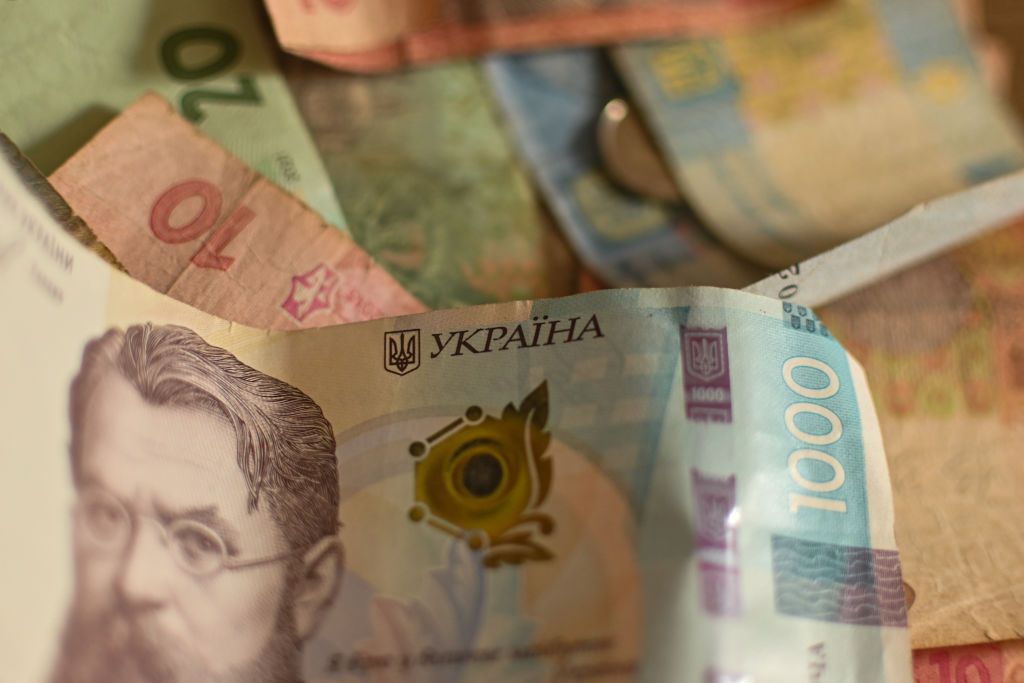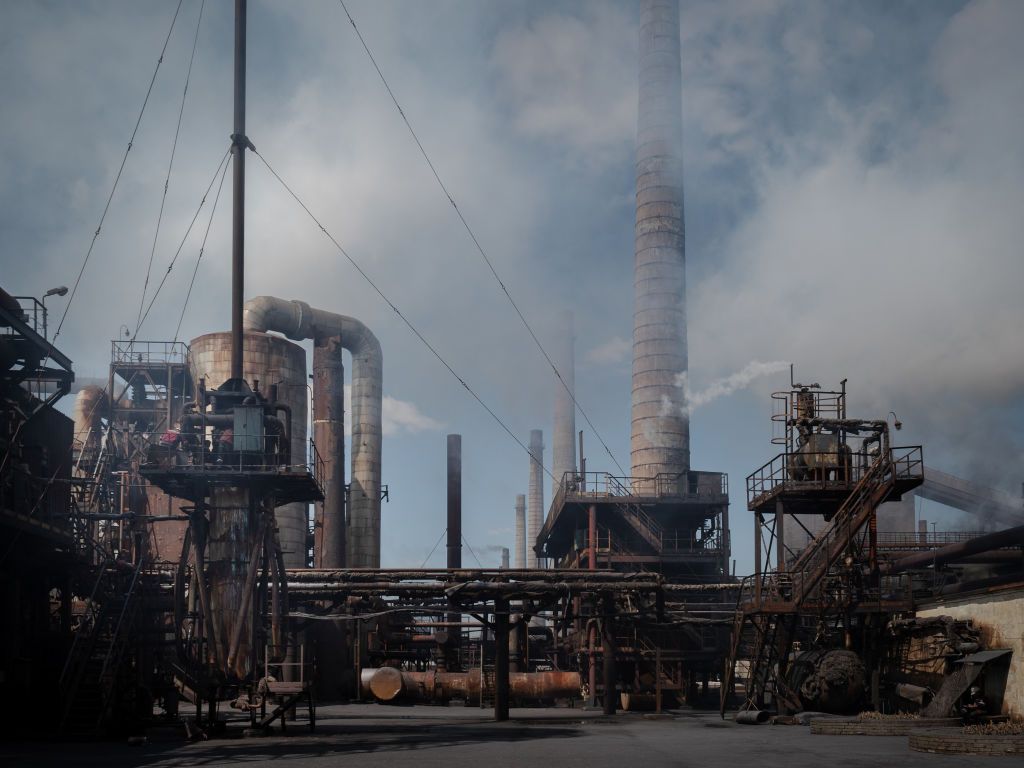Ukraine Business Roundup — Will Ukraine reach a deal on its debt?
Support independent journalism in Ukraine. Join us in this fight.
Become a member Support us just onceThe following is the July 16, 2024 edition of our Ukraine Business Roundup weekly newsletter. This version is condensed as the author was out of the office. To get the biggest news in business and tech from Ukraine directly in your inbox, subscribe here.
With Ukraine desperately seeking cash to fund its defense and wartime budget needs, the country is running out of time before an Aug.
1 deadline to agree with creditors on what portion of its foreign debt will be written off as a so-called "haircut." After a first round of negotiations ended last month without a deal, Finance Minister Serhii Marchenko said he was "confident" an agreement would be reached before the deadline. However, a document published by the Finance Ministry following the negotiations showed that the two sides' positions are still far apart.
The some £23 billion at the center of these negotiations represents about 15% of Ukraine's total government-backed debt. In 2022, Ukraine and its creditors agreed to halt payments owed on its debt following Russia's full-scale invasion. While governments agreed to postpone payments owed to them until 2027, private bondholders have not extended their freeze past the August expiration.
What's next? Ukraine can either reach a new restructuring deal, or negotiate an extension of the freeze to buy time. Otherwise, the country must begin payments within a 10-day grace period of Aug.
1 or officially default. Nobody wants a default: For bondholders, the value of their assets would sharply plunge.
For Ukraine, raising money for reconstruction efforts would be more difficult when it returns to international markets. And future debt restructuring could be harder if investors offload the defaulted bonds to other buyers. Bondholders are willing to make concessions in order to avoid this scenario, but exactly how much debt will be left - and what the new repayment schedule will look like - is what the parties are currently haggling over.
While some experts share the minister's view that a new deal is imminent, others think an extension of the freeze is more likely at this late stage. This section was brought to you by Kyiv Independent reporter Andrea Januta. Read the full article here.
 An State Security Service of Ukraine (SBU) officer.
An State Security Service of Ukraine (SBU) officer.
Illustrative purposes only. (SBU)
Criminal cases opened against businesses reach all-time high
A record 43,138 criminal proceedings were opened against 5,015 Ukrainian businesses in 2023, Ukrainian data analytics firm Opendatabot reported. Key indicator: The majority, or 80%, of criminal cases against businesses do not result in convictions or do not go to court at all. You may be thinking that's a good sign.
Maybe, but according to anyone you talk to in Kyiv familiar with the matter at hand, many of these criminal cases are bogus anyway. Nefarious law enforcement officials open them to intimidate or extort companies, knowing fully well the cases will be thrown out. But getting raided, having your business temporarily shut down and/or property and assets seized, and having to hire lawyers is enough to do a lot of damage to a business.
There are also reputational costs. In some cases, it's enough for businesses to throw in the towel. As I reported in this newsletter last week, energy company EDS, which got raided by the State Security Service, said that after 15 years of doing business in Ukraine, it was closing up shop and transferring production to the Czech Republic.
Just today, Forbes Ukraine reported that the Bureau of Economic Security is effectively blocking the work of a body armor manufacturer due to ongoing investigations of alleged tax evasion. What the hell is going on? President Volodymyr Zelensky has promised to fix this problem, by implementing a series of decrees that put a moratorium on searches and created a business council that could communicate directly with the president. The country's parliament voted to restart the above-mentioned bureau responsible for this heavy-handed pressure.
According to many, including Ukrainian activists and head of the Anti-corruption Action Center Vitaliy Shabunin, a major factor behind the continued pressure is Oleh Tatarov, a highly influential deputy of the president's office. Shabunin is far from the only person to name Tatarov as being behind the continued harassment of businesses, but many, if not most, are afraid to do so publicly. "Tatarov, to whom Zelensky delegated the management of the law enforcement system through (Chief of Staff Andriy) Yermak, is responsible for this," Shabunin wrote on Facebook following Opendatabot's report. "Name the names.
Or don't wait for changes."
 Ukrainian hryvnia bills, Aug.
Ukrainian hryvnia bills, Aug.
12, 2023. (Adrien Fillon/NurPhoto via Getty Images)
Little by little
Ukraine's GDP grew by 4.1% over the past six months, compared to the first six months of 2023, the Economy Ministry reported on July 12. The economy only grew by 1.1% in June compared to last year, however. "During June, the economy operated in difficult conditions of power outages," Economy Minister Yulia Svyrydenko said.
"However, due to the high adaptability to difficult conditions and experience in responding to such challenges, the Ukrainian economy continued to grow." Russia's invasion caused a major hit to Ukraine's economy, which suffered a whopping 29.1% fall in GDP in 2022. The economy stabilized faster than expected in 2023 due to several successful government programs, as well as international support, and grew by 5.3% in 2023.
While the economy may be trucking along and experiencing some growth since the fall in 2022, the economy is still around a third smaller than it was pre-war.
 Illustrative purposes only: Bullet casings sit in packets before loading into belts for use in machine guns at Ukroboronprom's Mayak PJSC manufacturing plant in Kyiv, Ukraine, on Wednesday, March 9, 2016. (Vincent Mundy/Bloomberg via Getty Images) // UEW
Illustrative purposes only: Bullet casings sit in packets before loading into belts for use in machine guns at Ukroboronprom's Mayak PJSC manufacturing plant in Kyiv, Ukraine, on Wednesday, March 9, 2016. (Vincent Mundy/Bloomberg via Getty Images) // UEW
Foreign investment in domestic arms production
Foreign partners have pledged to invest around £675 million in the Ukrainian defense industry to arm Kyiv's forces, Ukrainska Pravda reported on July 11, citing data from the Strategic Industries Ministry. Kyiv is looking to convince allied countries to donate arms to Ukraine's military via direct purchases from Ukrainian companies, as Kyiv's defense budget is unable to match the capacities of domestic weapons production. The agreement was signed on the sidelines of President Volodymyr Zelensky's first official visit to Istanbul since July 2023 when he brought home five commanding officers who had defended the Azovstal plant in Mariupol.
Though the pledged sum is still a far cry from the £10 billion benchmark presented by Strategic Industries Minister Alexander Kamyshin in May, it shows that the initiative is well underway. Ukraine aims for foreign partners to invest the £10-billion sum as part of a campaign called "Zbroyari: Manufacturing Freedom." The first country to enter into such an agreement with Ukraine was Denmark, signing a deal on a specialized mechanism in June.
Copenhagen's commitment has amounted to £198.5 million, covering - among others - the recently announced 18 pieces of Ukrainian Bohdana howitzers.
 A view of the Metinvest coke factory in Avdiivka, Ukraine, on Aug.
A view of the Metinvest coke factory in Avdiivka, Ukraine, on Aug.
10, 2018. Illustrative purposes only. (Gaelle Girbes/Getty Images)
Industrial parks
In Ukraine, even Russia's full-scale invasion hasn't halted the development of industrial parks, Ukraine's Economy Minister and First Deputy Prime Minister Yulia Svyrydenko writes in a recent op-ed for the Kyiv Independent. Why does it matter? Industrial parks -- areas zoned and planned for industrial development -- offer residents tax incentives, simplified regulatory regimes, as well as ready-made infrastructure.
If successful, they bring new jobs, increased tax revenue, and regional development. Industrial parks have helped triple exports in Turkey, according to the ministry. In South Korea, companies located in industrial parks have accounted for 72% of exports, and contribute about 23% of GDP in China.
In Ukraine, to cite a few examples, a new plant is set to launch at a park in the Kyiv Oblast city of Fastiv. All vacant premises in Bila Tserkva are filled. In Lviv Oblast, two of the three parks have commissioned industrial buildings and are attracting residents.
Despite these success stories, fewer than 20 of Ukraine's 80-plus registered industrial parks are operational. The ministry wants to change this, by offering tools to attract investment through its "Made in Ukraine" policy put forth by the president, including £24.5 million allocated in the budget and other incentives. Read more about the ministry's plans here. here.
What else is happening
Hryvnia exchange rate continues to drop following further currency liberalization
The official dollar exchange rate exceeded Hr 41 for the first time, as Ukraine's Central Bank continues to ease currency restrictions.
The bank first relaxed the official peg in October 2023. While the drop appears to be a worrying sign, the devaluation is a controlled measure by the bank to raise more funds through excise taxes and foreign financial assistance.
Energy situation should improve after July 20, Shmyhal says
The government is working to decentralize energy production in the country, and has been providing support to a wide spectrum of consumers to facilitate additional energy generation, Prime Minister Denys Shmyhal said on July 14. The government is utilizing alternate forms of energy, including solar panels and wind turbines, as well as disbursing grants and preferential loans.
Dry weather in July worsens crop conditions
The dry and hot weather Ukraine is experiencing in July has worsened the condition of agricultural crops, according to an analytical report by the National Academy of Agrarian Sciences.
During the first part of the month, there was almost no rain in Ukraine, while the average air temperature was three to six degrees above normal.
Ukraine's population could drop to 15.3 million by end of century, UN says
The population of Ukraine amounted to 37.441 million people by Jan.
1, 2024, while in 2026, it will rise to 39.7 million and then will begin to decline every year, according to the UN.
Oleksandr Hladun, deputy director of Ukraine's Demography Institute, called the UN's forecast "pessimistic," saying it "was probably developed with the war in mind and the absence of any demographic policy measures."
40% of apartments sold in new buildings not being built due to labor shortages
In Kyiv, only 60% of apartments sold in new building complexes are currently under construction, Liga reported. "According to our estimates, the labor shortage at construction sites is roughly 30-40%," Olga Gavura, managing partner of the construction company 7Ci Group, told Liga.
Subscribe to the Newsletter
Ukraine Business Roundup
Subscribe